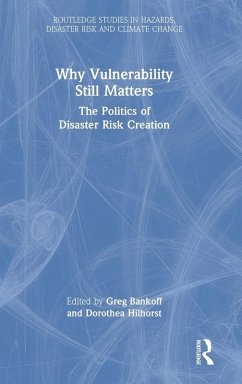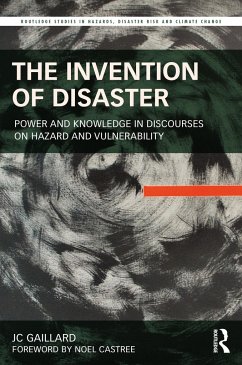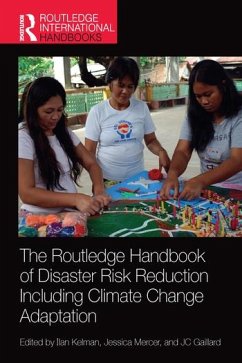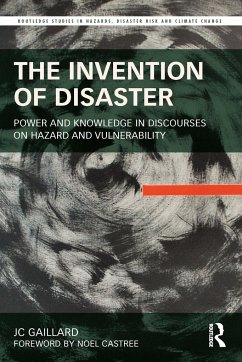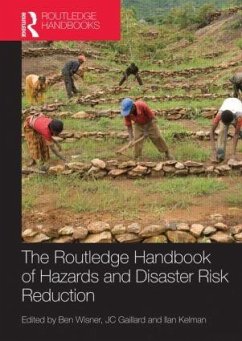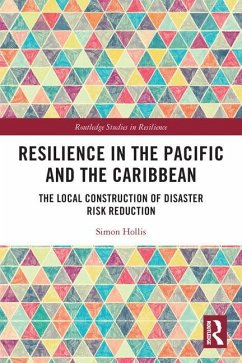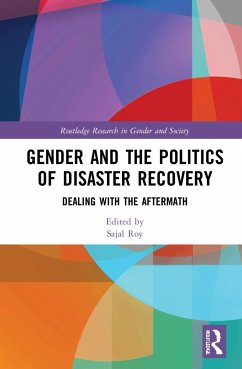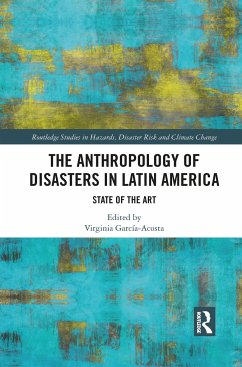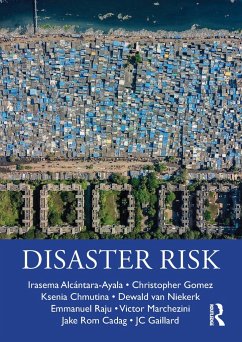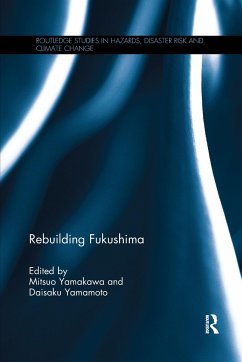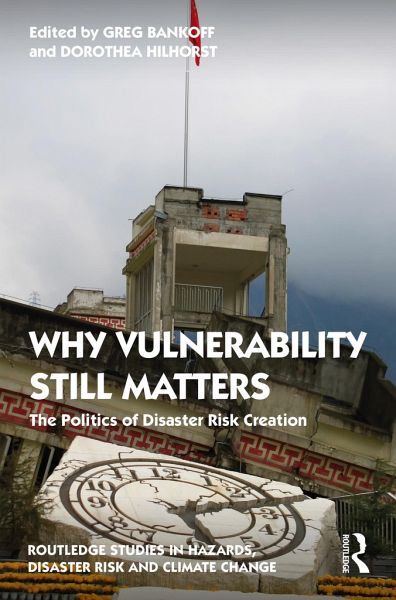
Why Vulnerability Still Matters
The Politics of Disaster Risk Creation
Herausgegeben: Bankoff, Greg; Hilhorst, Dorothea
Versandkostenfrei!
Versandfertig in 6-10 Tagen
41,99 €
inkl. MwSt.

PAYBACK Punkte
21 °P sammeln!
We think vulnerability still matters when considering how people are put at risk from hazards and this book shows why in a series of thematic chapters and case studies written by eminent disaster studies scholars that deal with the politics of disaster risk creation: precarity, conflict, and climate change.The chapters highlight different aspects of vulnerability and disaster risk creation, placing the stress rightly on what causes disasters and explaining the politics of how they are created through a combination of human interference with natural processes, the social production of vulnerabi...
We think vulnerability still matters when considering how people are put at risk from hazards and this book shows why in a series of thematic chapters and case studies written by eminent disaster studies scholars that deal with the politics of disaster risk creation: precarity, conflict, and climate change.
The chapters highlight different aspects of vulnerability and disaster risk creation, placing the stress rightly on what causes disasters and explaining the politics of how they are created through a combination of human interference with natural processes, the social production of vulnerability, and the neglect of response capacities. Importantly, too, the book provides a platform for many of those most prominently involved in launching disaster studies as a social discipline to reflect on developments over the past 50 years and to comment on current trends.
The interdisciplinary and historical perspective that this book provides will appeal to scholars and practitioners at both the national and international level seeking to study, develop, and support effective social protection strategies to prevent or mitigate the effects of hazards on vulnerable populations. It will also prove an invaluable reference work for students and all those interested in the future safety of the world we live in.
The Open Access version of this book, available at http://www.taylorfrancis.com, has been made available under a Creative Commons Attribution-NonCommercial-ShareAlike (CC-BY-NC-SA) 4.0 International license.
The chapters highlight different aspects of vulnerability and disaster risk creation, placing the stress rightly on what causes disasters and explaining the politics of how they are created through a combination of human interference with natural processes, the social production of vulnerability, and the neglect of response capacities. Importantly, too, the book provides a platform for many of those most prominently involved in launching disaster studies as a social discipline to reflect on developments over the past 50 years and to comment on current trends.
The interdisciplinary and historical perspective that this book provides will appeal to scholars and practitioners at both the national and international level seeking to study, develop, and support effective social protection strategies to prevent or mitigate the effects of hazards on vulnerable populations. It will also prove an invaluable reference work for students and all those interested in the future safety of the world we live in.
The Open Access version of this book, available at http://www.taylorfrancis.com, has been made available under a Creative Commons Attribution-NonCommercial-ShareAlike (CC-BY-NC-SA) 4.0 International license.





